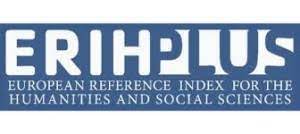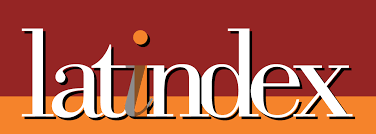El factor religión en la construcción de la política exterior
DOI:
https://doi.org/10.61144/0718-9397.2021.394Resumen
El artículo describa y explica el fenómeno religioso como parte del sistema internacional y de la construcción de la política exterior en la sociedad internacional contemporánea. A partir de modelos teóricos planteados como el instrumentalitarismo colectivo, se da cuenta de los espacios de interacción y negociación de intereses religiosos en la arena global. Finalmente, se ejemplifica la relevancia del tema de estudio a partir de la institucionalidad norteamericana en materias de libertad religiosa internacional.Citas
Bastian, Jean Pierre. La modernidad religiosa: Europa latina y América latina en perspectiva comparada. México, FCE. 2012.
Calduch, Rafael. Dinámica de la sociedad internacional. Madrid, Editorial Ceura, 1993. Casanova José. Religiones públicas en el mundo moderno. Madrid, PPC, 2000.
Chelini-Pont, Blandine. Etats, Religions et Relations Internationales: Historiographie -Evolution depuis 1945. Projetd’ Enseignement, 2019. De la Torre, Renee. De la globalización a la transrelocalización de lo religioso. Debates do NER, Porto Alegre, año 19, nº 16, Jul./Dez. 2009.
Fox, Jonathan y Sandler, Shmuel. Bringing Religion into International Relations. Culture and Religion in International Relations. New York, Palgrave Macmillan, 2004.
Fox, Jonathan. Integrating religion into international relations theory. En: J. Haynes, Routledge Handbook of Religion and Politics, New York: Routledge, 2009.
Fukuyama, Francis. El fin de la historia y el último hombre. Barcelona, Editorial Planeta, 1992.
Habermas, Jürgen. Apostillas sobre una sociedad post-secular. Revista Colombiana de Sociología, Universidad Nacional de Colombia, núm. 31, julio-diciembre, 2008, pp. 169-183.
Haynes, Jeff. Religion, Secularisation and Politics: A Postmodern Conspectus. Third World Quarterly, Vol. 18, No. 4 (Sep., 1997), pp. 709-728.
Haynes, Jeffrey. Religion and foreign policy. J. Haynes, Routledge Handbook of Religion and Politics, New York, Routledge, 2009.
Haynes, Jeffrey. Trump and the Politics of International Religious Freedom. Religions 11, no. 8: 385, 2020.
Hervieu-Léger, Daniele. Faces of Catholic Transnationalism. En: Hoeber, Susane y Piscatore, James (eds). Transnational Religions and Fading States. Colorado, Westview Press, 1997.
Kanwal Sheikh, Mona. How does religion matter? Pathways to religion in International Relations. Review of International Studies, Vol. 38, No. 2, April 2012, pp. 365-392. López, Elena. La libertad religiosa como política exterior de los Estados: los casos de Estados Unidos y de la Unión Europea. Derecho, Estado y Religión. Vol. 3 Núm. 3, 2017.
Magee, Malcolm. U.S. Foreign Policy and Religion. Oxford Research Encyclopedia of Religion. 19 Dec. 2017.
Maoz, Zeev y Henderson, Errol A. Scriptures, Shrines, Scapegoats, and World Politics. Grand Rapids, University of Michigan Press. 2020.
Marsden, Lee. Bush, Obama and a faith-based US foreign policy. International Affairs. Vol. 88, No.5, September 2012, pp. 953-974.
Morandé, José y Pomerleau, Claude, (eds). Globalización y visiones religiosas: opciones por los derechos humanos y el medio ambiente. Santiago, RIL editores, 2002.
Nye, Joseph. Soft Power: The Means to Success in World Politics. New York, Public Affairs, 2004.
Palomino, Rafael. Los problemas de la libertad religiosa en un mundo globalizado. La libertad religiosa a través de los informes internacionales. En: Las dimensiones jurídico-públicas de la Dignitatis Humanae. Colección "Religión, derecho y sociedad" (15). Comares, Granada, 2007. pp. 167-188.
Parker, Cristián. Otra lógica en América Latina: religión popular y modernización capitalista. Santiago, FCE, 1996.
Petito, Fabio, y Hatzopoulos, Pavlos, (eds.). Religion in International Relations: The Return from Exile. New York, Palgrave Macmillan, 2003.
Preston Andrew. Sword of the Spirit Shield of Faith, Religion in American War and Diplomacy. New York. Anchor Books, 2012. Priego, Alberto. Geopolítica y religión. Una perspectiva crítica de la geopolítica. Revista Razón y Fe. Vol. 274 Núm. 1416, octubre, 2016
Sandal, Nukhet Ahu. The Clash of Public Theologies? Rethinking the Concept of Religion in Global Politics. Alternatives: Global, Local, Political, Vol. 37, No. 1, February 2012.
Su Anna. Exporting Freedom: Religious Liberty and American Power. Cambridge, MA: Harvard University Press, 2016.
Thomas, S. Outwitting the developed countries? Existential insecurity and global resurgence of religion, Journal of International Affairs, Vol. 61, No. 1, 2007.
Warner, Carolyn M. y Walker, Stephen G. Thinking about the Role of Religion in Foreign Policy: A Framework for Analysis. Foreign Policy Analysis, Volume 7, Issue 1, January 2011, pp. 113–135.
Cómo citar
Licencia
Los autores/as conservarán sus derechos de autor y garantizarán a la revista el derecho de primera publicación de su obra, el cual estará simultáneamente sujeto a la Licencia de reconocimiento de Creative Commons (CC BY-NC-ND) 4.0 que permite a terceros compartir la obra siempre que se indique su autor y se comparta el documento, en formato pdf y con la paginación del número original, a través del que este ha sido publicado por la revista. Siguiendo las definiciones establecidas por la licencia (ver: https://creativecommons.org/licenses/by-nc-nd/4.0/deed.es) los números de la revistas seguirán los siguientes términos:
-
Atribución — Usted debe dar crédito de manera adecuada, brindar un enlace a la licencia, e indicar si se han realizado cambios. Puede hacerlo en cualquier forma razonable, pero no de forma tal que sugiera que usted o su uso tienen el apoyo de la licenciante.
-
No Comercial — Usted no puede hacer uso del material con propósitos comerciales.
-
Sin Derivadas — Si remezcla, transforma o crea a partir del material, no podrá distribuir el material modificado.
- No hay restricciones adicionales — No puede aplicar términos legales ni medidas tecnológicas que restrinjan legalmente a otras a hacer cualquier uso permitido por la licencia.












